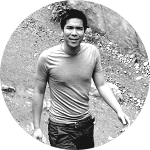Over the last decade, in the Amarakaeri Communal Reserve, located in the jungles of southeast Peru, the state discovered a treasure: hydrocarbons.
There is estimated to be over 12 trillion cubic metres of natural gas on over 90 per cent of this land.
That is a figure large enough to supply France for 300 years.
Despite securing the protected status of a reserve in 2002, the Peruvian state has granted a US oil company, Hunt Oil, a concession to exploit these resources.
Hunt Oil has long had a reputation for controversy, and even proudly describes itself as being “very proactive and aggressive from an operational point of view”.
The first stages of the exploration process in the area, which has been given the code name ’Lot 76’, have been conducted with ruthless intensity: 20,000 seismic detonations and the establishment of 166 mobile camps for the US firm’s employees.
Yet the people living on the reserve, despite the serious impact of these operations, are struggling to have their concerns heard, and complain of being faced with a company that seems closed to any kind of dialogue.
Convened by FENAMAD (Native Communities Federation of Madre de Dios), the ten indigenous communities directly affected by the exploration activities met for the first time on 4 and 5 June 2014.
“The lack of information often leads to confusion,” explains the Federation’s president, Klaus Quique.
And they are clearly tired of having other people make decisions for them.
“Hunt Oil is promising us development,” he says with irony. “But what is development? More beers? More money? Having others make ‘life plans’ for us?”
Divide and rule
The 600-strong Puerto Luz indigenous community within ‘Lot 76’ is the most directly affected by the Hunt Oil project.
Reaching this remote, isolated community requires no less than a car, a boat, a four-wheel drive, a motorbike and a six hour journey. There is no internet or postal service.
The information available is often therefore distorted and contradictory.
“There are always doubts with Hunt Oil. We don’t receive enough visits and information,” says Federico, former mayor of Puerto Luz. “And there is a lot of need in the community.”
For many families, it is hard to resist the money and gifts offered by Hunt Oil.
Ricardo, the head of the village school, speaks harshly about the company. “They give the children sweets so that they don’t cry.”
And when they promise to support education, explains Ricardo, all it actually amounts to is a few pens and exercise books... with the US company’s logo.
For four years, Hunt Oil provided the village with a barrel of oil a month to run the power generator three hours a day.
In December 2013, the deliveries suddenly stopped. Puerto Luz had decided not to ratify the agreement proposed by the oil company for the drilling of wells. It wanted to consult FENAMAD first.
For Jorge Tayori, deputy mayor of the Puerto Luz community, Hunt Oil is using the strategies of divide and rule and exploiting its opponent’s weaknesses: “When the company suspended its monthly ‘gift’ because the leaders went to consult with the Federation, the villagers blamed FENAMAD. It is very manipulative.”
He does, however, admit that some community leaders are easier to conciliate, not to say corrupt, than others. “They have bought off influential families behind my back. They create divisions – that’s their strategy. They’re doing the same thing in the ten communities.”
“People think that Hunt Oil is going to improve our living conditions,” he continues. “An oil company came to Loreto in the north of the country. People believed it would improve things. Now their river is totally polluted. They can’t drink from it or bathe in it anymore.”
Counter-offensive underway
For the first time in their history, the indigenous communities have collectively decided to urgently draw up a counter-proposal to Hunt Oil, establishing the total absence of contamination of their lands and waters as an indispensable prerequisite.
At the same time, the Federation is trying to organise the political and legal counteroffensive, despite not yet having the funds to cover legal costs and the absence of dialogue with the Peruvian Congress.
The communities are arguing that the contract for ‘Lot 76’ was concluded without consulting them, as required by law to make it valid.
Moreover, the former president of the Council of Ministers of Peru, Pedro Pablo Kuczynski (known as PPK), who signed the concession agreement with the US firm for ‘Lot 76’ on 19 October 2005, is a former advisor and lobbyist for Hunt Oil, which raises questions as to the independence of the Peruvian executive.
Despite the absence of dialogue, the company is insistent that drilling will start by the end of 2014.
Barbara Bruce, CEO of Hunt Oil Peru, responded to the invitation to attend the meetings on 4 and 5 June with these words: “We cannot, unfortunately, attend your meeting as our diaries will not allow us.”
Our attempts to contact Hunt Oil and the government have, meanwhile, proved fruitless.










